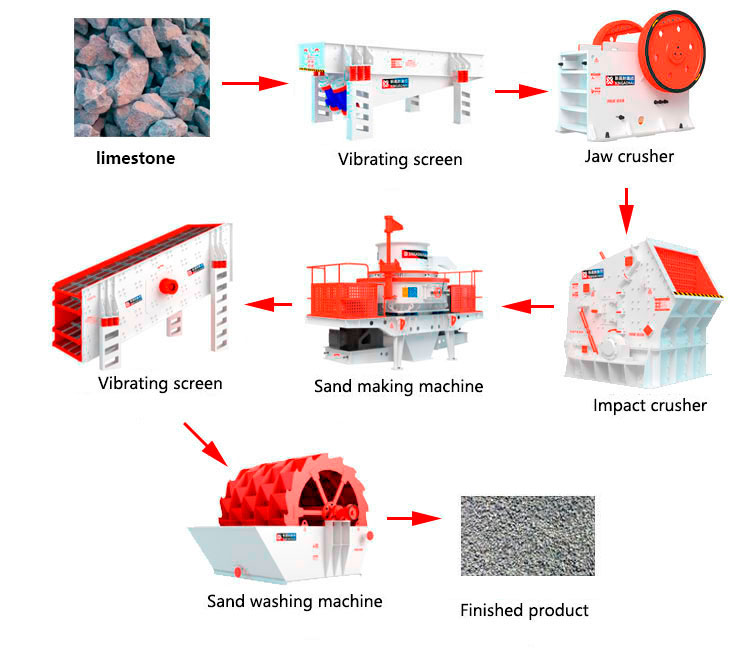
The main component of limestone is calcium carbonate, with a Mohs hardness of 3. After limestone is mined from limestone, it is crushed to form limestone particles, i.e. stone, sand, or further ground to form limestone powder, which is widely used in building materials, roads, metallurgy, chemical industry and other industries. Lime can be divided into quicklime and slaked lime. After calcination, limestone becomes calcium oxide, generally in block form, which is used in water treatment, asphalt improvement, desulfurization, building materials, medicine and other industries. Quicklime absorbs moisture or adds water to become slaked lime, the main component of which is calcium hydroxide, which is used in environmental protection, medicine, food and other industries.
First process
Large limestone blocks are fed evenly by a vibrating feeder through a silo and transported to a jaw crusher for coarse crushing. The coarsely crushed materials are screened by a vibrating screen and then transported to an impact crusher by a belt conveyor.
Second process
After the coarsely crushed materials transported to the impact crusher are crushed by the impact crusher, a circular vibrating screen is used to screen the crushed materials, and the larger particles are returned to the impact crusher for further crushing; if finer products or shaping are required, the crushed materials are sent to a sand making machine for further crushing and shaping.
Third process
The crushed small limestone blocks are sent to the silo by an elevator, and then sent to a sand washer for filtration and cleaning by a vibrating feeder.
